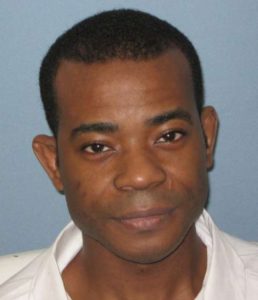
On March 5, an innocent man lost his life at the hands of the state of Alabama. Pronounced dead at 9:01 PM local time, Nathaniel Woods drew his last breath in the Holman Correctional Facility in Atmore, Alabama, as his U.S. Supreme Court-appointed stay of execution was lifted and Gov. Kay Ivey refused to exercise her powers of commutation or reprieve. Nathaniel Woods was executed but it can’t be proved that he committed the crime.
This execution was carried out despite widespread outcry and in complete disregard of all doubts presented in regard to Woods’s guilt and concerns put forward about the legal proceeding that led to his final sentencing. Despite evidence of his innocence brought forward by his family and numerous supporters, his execution was pushed through.
Evidence of innocence in an unfair trial
The state of Alabama disregarded the statement of Kerry Spencer, Woods’s codefendant, that he was “100 percent innocent.” This is something that Spencer says he knows “for a fact because [he is] the person who shot and killed all three officers.” Spencer pleaded”: “Don’t allow another innocent man to be executed if you can do something to put a stop to it.” He confessed via a handwritten letter that he was the lone gunman, stating that Woods was unarmed and fled from the altercation when the gunfire began.
They also disregarded the statement of Kimberly Chisholm Simmon, the sister of one of the officers shot, who said to The Appeal: “I do not think that Nathaniel is guilty of murder. I urge Governor Ivey to reconsider her decision not to intervene. There is no harm in allowing more time for the courts to investigate. I want the new evidence to be brought forward and evaluated by new attorneys. Please do not move forward with the hasty decision to execute Nathaniel. My conscience will not let me live with this if he dies. I beg you to have mercy on him.”
Along with these statements from both his codefendant and the family of one of his alleged victims, there was a joint investigation between The Appeal and the Alabama Media Group which brought to light an assortment of police misconduct allegations tied to the case. Issues brought forward ranged from insufficient counsel and a complete disregard for errors, to the court’s admission that rap lyrics found in Woods’ cell were used as evidence in his trial.
The response
Those speaking out against this injustice include Martin Luther King III, who stated on Twitter that “In the case of Nathaniel Woods, the actions of the U.S. Supreme Court and the governor of the state of Alabama are reprehensible, and have potentially contributed to an irreversible injustice,” and declared in regard of the trial that “It makes a mockery of justice and constitutional guarantees to a fair trial.”
Regardless of the outrage of the people over this unjust punishment, Alabama Gov. Kay Ivey has stood by her decision to continue with the execution of Nathaniel Woods stating, “After thorough and careful consideration of the facts surrounding the case, the initial jury’s decision, the many legal challenges and reviews, I concluded that the state of Alabama should carry out Mr. Woods’ lawfully imposed sentence this evening.”
In a statement to The Appeal, Woods’s sister, Pamela Woods, said that Ivey and Attorney General Steve Marshall “chose to ignore the facts in order to murder” Nathaniel, and that she vowed to keep fighting for “justice in Nathaniel’s death that he was tragically robbed of in his life.”





